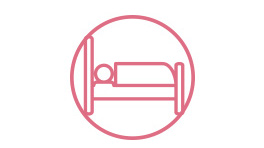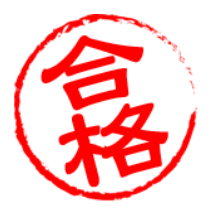Distinctive Features
Learn overall Japanese (all 4 skills reading, writing, listening and speaking).
-> More
20 lessons of Japanese per week, Monday to Friday (4 hours a day with breaks).
Optional electives after you reach intermediate level, helping to get into university, vocational college or finding a job in Japan (please note, job-finding class is only available at Harajuku campus).
Ikebukuro Campus has Japanese students in the same building.
Get more chances to interact with native speakers, to double the effectiveness of attending language school.
-> Accommodation
Dormitory facilities (choose single, twin or triple rooms) available.
Homestay is also an option, offered by the school at 5,300 JPY/night (2 meals included).
Private accommodation can also be organised; inquire for further details.
-> Features:
Free Wi-fi, student lounge, computer stations, English-speaking staff available and part-time job finding support.
All classes are conducted in Japanese. This 'direct' teaching method allows you to start thinking in Japanese, meaning you will learn at a much faster pace.
-> Scholarships Available:
To those on a student visa with excellent grades and attendance, who are studying for over one year. (Maximum study duration is 2 years on a student visa. You most likely need a student visa if you would like to study for over 3 months. Contact us and we will walk you through the process).
-> Recommendations/Tips:
This school accepts complete beginners too!
You will be placed in the right class after a level check test.
It is recommended to learn the basics before arriving, of course :) Free resources can be provided if asked.
The school can introduce you part-time jobs if you are allowed to work (inquire for details).
Optional Classes
-School festivals and fairs throughout the year.
-Career Guidance: Please apply to the Harajuku campus for full-time job-finding.)
Optional elective classes you can change every 3 months:
-> University Preparatory Class
In the beginner’s level, students will learn the basic Japanese including reading, writing, speaking and listening in a well-balanced manner.
In intermediate and advanced levels, students will take Core Classes for 16 hours and elective classes for EJU (Examination for Japanese Universities) or JLPT (Japanese Language Proficiency Test) for 4 hours per week.
Students will have field works, speech practices and research presentations based on their Japanese level.
In EJU elective classes, students will study reading comprehension, listening and reading comprehension and essay preparations. Students will learn from past exams and how to find the answers and score high in the EJU.
-> Job-Finding Class
Admission Criteria for job-hunting class: Those eligible to apply for a work visa in Japan (Associate and Bachelor Degree holders).
Content: Core classes of reading, writing, speaking & listening Japanese. Intermediate and advanced levels involve core classes, plus this job-finding class if you choose this elective.
Highlights: -Learn proper business manners, unique to Japan-Job interview skills practice
-Helps prepare for the JLPT N1 and N2
Opportunities to attend: -Career fairs for foreign students
-On-campus orientation sessions held by Japanese companies wishing to hire foreign students. Be able to talk to the people in charge of human resources and schedule an interview with them.
Essential for people intending to find work in Japan, you will learn:
-Business Japanese, and 'Honorific' form of the language.
-Communication Ability, International Understanding.
-Presentation Skills, Analysis of One's Strengths.
-Gain an understanding of Japanese affairs, business manners and the ability to adapt to Japanese society.
-Immediately start analyzing different companies, by subscribing to job-hunting websites.
-During business visits, have to opportunity to talk to other foreigners already working with Japanese people.
-Not available at the Ikebukuro or Takadanobaba campus. Please apply to the Harajuku campus instead, for job-finding.
-> College Pathway Class
At the beginner levels, the student will learn the basics by learning reading・listening・writing・speaking.
At the intermediate and advanced levels, after taking 16 Core Classes per week, the student can choose 2~4 more classes per week electives such as JLPT preparation or conversation.
For those classes with lots of students that do not use Kanji, there will be a lot more time spent learning kanji so they will not have problems once they go to college.
Also, in order to deepen the understanding of the Japanese culture, different types of activities from time to time are scheduled.
College trial classes are scheduled about 3 to 4 times a year.
The students will have the opportunity to attend different classes and take a look at the vocational schools/colleges before they apply to them.
-> JLPT N2 or N1 Class
What is the JLPT?
It stands for the Japanese Language Proficiency Test, and is used to assess your Japanese level. The levels go from N5, basic Japanese; to N1, advanced Japanese.
To work full-time in Japan, it is recommended to have at least N2 level of the JLPT. The JLPT is a useful benchmark to have as a clear goal for improving your language ability.
Contents: Core classes of reading, writing, speaking & listening.
The aim is to pass the N1, N2 level of the Japanese Language Proficiency Test given in July and December.
As preparation, during the 3 months of the April and August term, past questions and mock tests are given.
By continuously doing past questions, the students will get used to the question format and be able to overcome their weakness.
During the 3 months of the July and January term, the student will gain the necessary basic knowledge by strengthening their vocabulary, their listening comprehension and their reading comprehension skills.
The students will not only be able to prepare for the test but will also gain a much broader knowledge of the language.
-> Also available: Graduate School Pathway Class (Offered in Takadanobaba Campus)
Prepares students in writing research proposals and short theses that are required when applying to graduate schools in Japan.【Requirements for enrollment】Must have graduated from a university from the student’s home country, Must be eligible to apply to graduate school.
-> Also available: The Top University Preparation Class (Offered in Takadanobaba Campus)
Specially designed for students who aim to apply to the most prestigious universities in Japan.
Students who complete the Beginner I Japanese class may take the screening test to apply to the Top University Preparation Class.
Students who pass the screening test are enrolled in the said class.
This Class progresses faster than the normal curriculum and also puts more weight into preparing for the EJU and university entrance exams.
※ Please be advised that students who are admitted in January are not eligible to apply to this class.
Also available: Specified Skilled Workers‘ Employment Support Program
Levels:
You will be placed in the appropriate level, after a placement test on the first day of language school in Japan.
Complete beginners are also accepted, 4 times a year; in the 2nd week of Jan, April, July and October.
Other levels will be placed in the appropriate level after a level check test on the first day. Inquire for individual guidance.
In just 10 weeks (3 months) from complete beginner level, you will reach JLPT N5 (Japanese language proficiency test beginner) level & know 150 kanji.
In just 1.5 years (18 months) from complete beginner level, you can reach JLPT N2 level, enough to get into university, vocational college or full-time employment using Japanese!
Click to expand
JLPT = Japanese Language Proficiency Test. Most internationally recognised test for Japanese learners and employers.
kanji = Chinese characters adopted into Japanese, e.g. 漢字
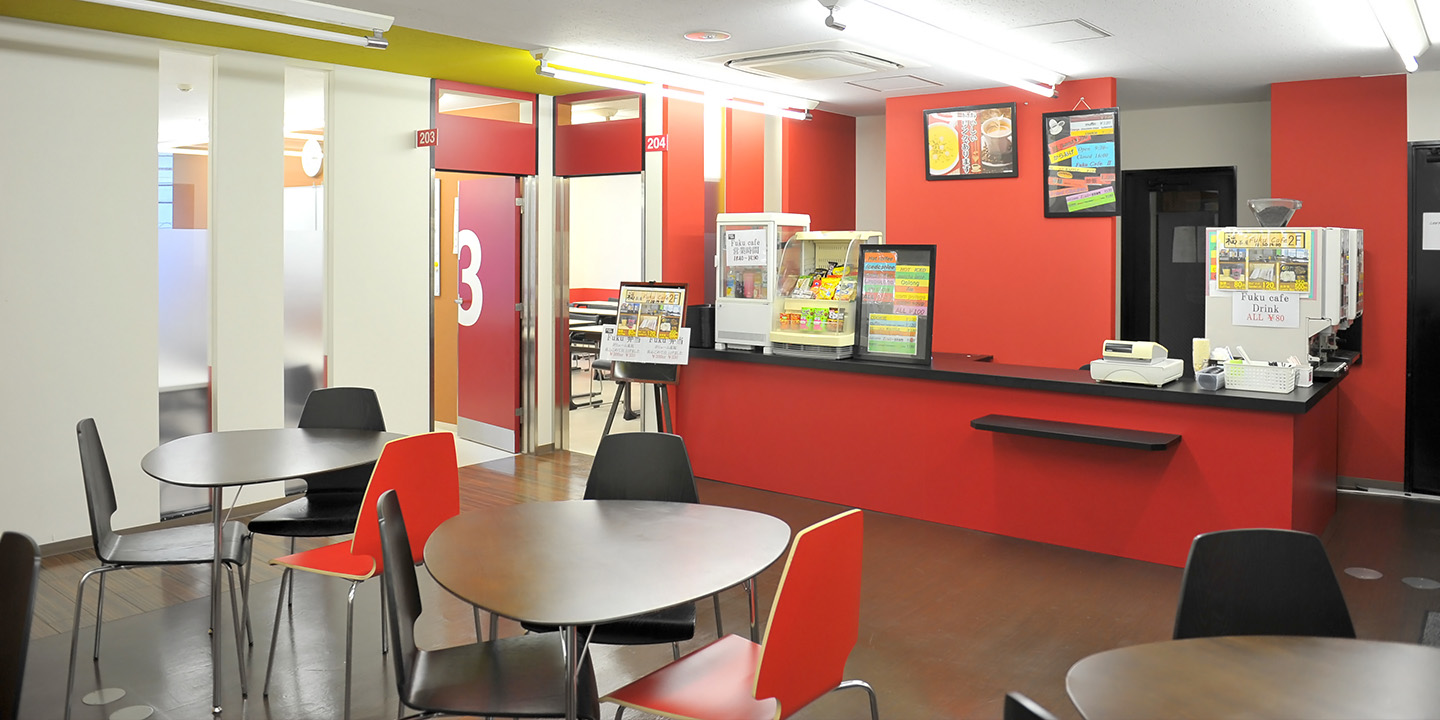
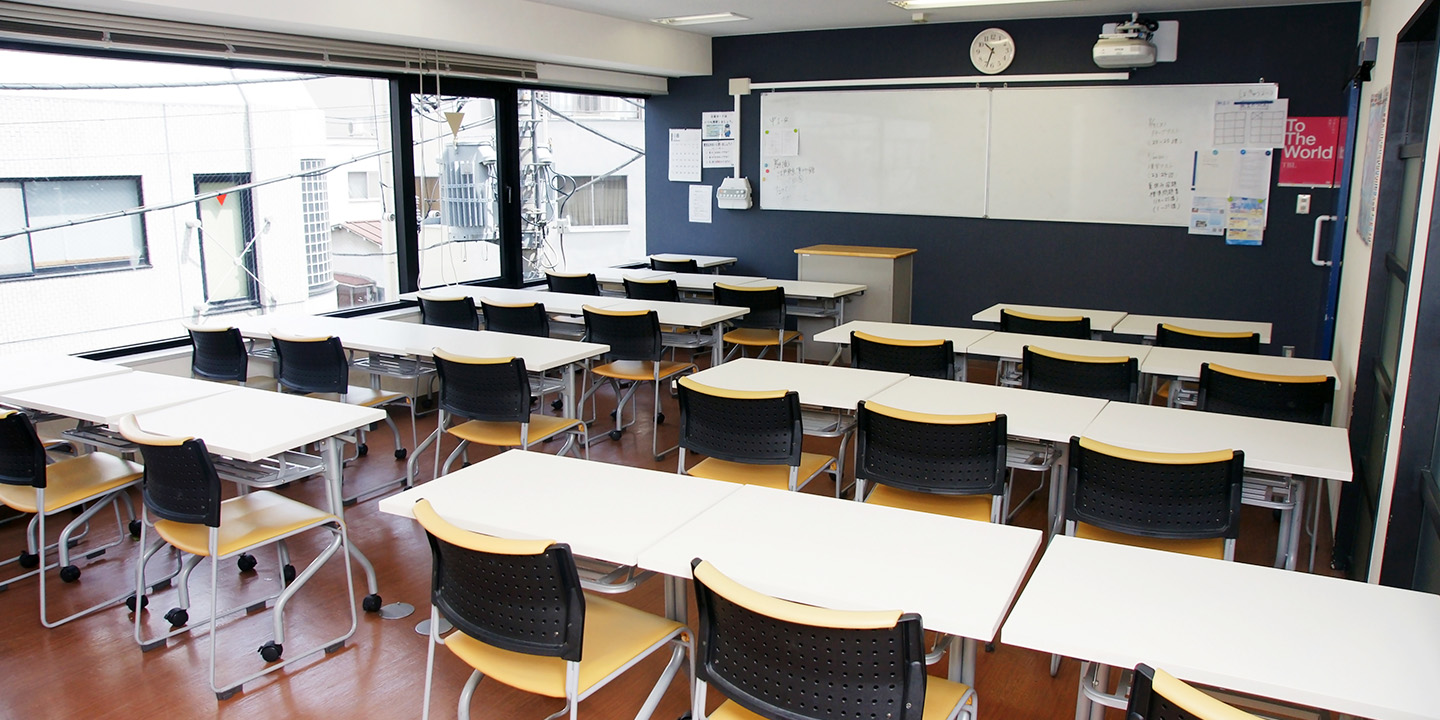
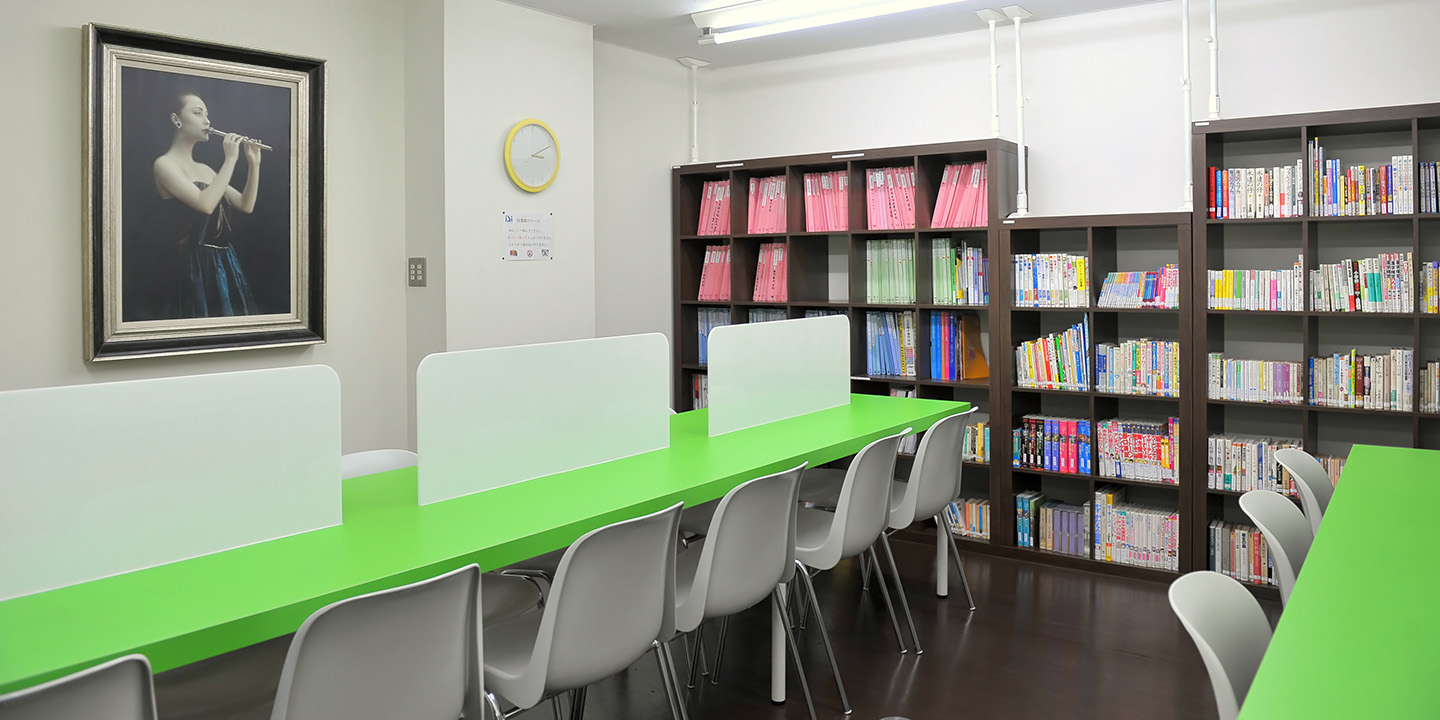
See the facilities! Includes a cafe, library and wide ventilated classrooms.
-> Class Times
Class time will depend on the Japanese level, so students will not be able to choose between morning and afternoon classes.
Morning classes
1st period : 8:50~10:20
2nd period : 10:30~12:00
OR
Afternoon classes
1st period : 13:00~14:30
2nd period : 14:40~16:10
(Lesson length 90mins×2 Lessons)
-> Distance from Stations
Choose between 2 different locations.
-Tokyo 2: Near many famous universities, e.g. Waseda University. Very convenient 3 minutes walk from Takadanobaba station (Tokyo Metro line, and JR Yamanote line).
-Tokyo 3: In Ikebukuro, famous for anime/manga, 'electric city'. Has Japanese students in the same building, allowing you the chance to speak with native speakers! Only 5 minutes walk from Ikebukuro station (JR and Tokyo Metro, major lines).
Fees
From enrolment period April 1st 2025~ March 31st 2026:
| 2 weeks | 3 months | 6 months | 1 year | |
| Application + Admission | 20,000 JPY | 20,000 JPY | 110,000 JPY | 110,000 JPY |
| Tuition | 35,400 JPY | 177,000 JPY | 354,000 JPY | 708,000 JPY |
| Materials Fee (Per term) | 11,000 JPY | 11,000 JPY | 22,000 JPY | 44,000 JPY |
| Facility and Management Fees | 4,000 JPY | 20,000 JPY | 40,000 JPY | 80,000 JPY |
| Total | 70,400 JPY | 228,000 JPY | 526,000JPY | 942,000JPY |
From enrolment period April 1st 2026~ March 31st 2027:
| 2 weeks | 3 months | 6 months | 1 year | |
| Application + Admission | 20,000 JPY | 20,000 JPY | 110,000 JPY | 110,000 JPY |
| Tuition | 49,560 JPY | 177,000 JPY | 354,000 JPY | 708,000 JPY |
| Materials Fee (Per term) | 11,000 JPY | 11,000 JPY | 22,000 JPY | 44,000 JPY |
| Facility and Management Fees | 4,000 JPY | 20,000 JPY | 40,000 JPY | 80,000 JPY |
| Total | 84,560 JPY | 228,000 JPY | 526,000JPY | 942,000JPY |
From enrolment period April 1st 2027~ March 31st 2028:
| 2 weeks | 3 months | 6 months | 1 year | |
| Selection + Entrance | 30,000 JPY | 30,000 JPY | 110,000 JPY | 110,000 JPY |
| Tuition | 50,400 JPY | 177,000 JPY | 354,000 JPY | 708,000 JPY |
| Materials Fee (Per term) | 13,750 JPY | 13,750 JPY | 27,500 JPY | 55,000 JPY |
| Facility and Management Fees | 5,000 JPY | 25,000 JPY | 50,000 JPY | 100,000 JPY |
| Total | 99,150 JPY | 248,750 JPY | 577,500JPY | 1,015,000JPY |
FAQs
Are flights included?
Flights are not included, as courses are flexible and students prefer to make their own travel arrangements. Assistance can be provided if required.
What about accommodation?
You can choose to add this or not. The schools can provide accommodation for you, such as in a host family’s home, share house, school dormitory or private apartment. We can also help with looking for other accommodation.
Accommodation will be decided after applying to the school.
Application process:
Choose course -> Apply -> Choose accommodation -> Receive confirmation and pay school -> Prepare for Japan!




